Magnesium
How to submit an article:
- Registered users can submit any published journal article that has a unique DOI (Digital Object Identifier) name or link to Research Hub.
- For example, you can paste the full DOI link:
https://doi.org/10.1109/5.771073or just the DOI name:10.1109/5.771073into the field above and click submit. - The person who is first to submit a valid article to Research Hub will forever be credited for it, and every article submission earns you +6 Research Points.
Related Topics
Published research studies are articles that present the findings of original research that has undergone a peer-review process and has been made publicly available in scholarly journals, books or other media.
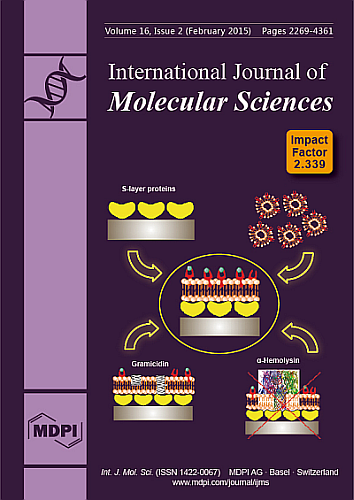
Magnesium and the Brain: A Focus on Neuroinflammation and Neurodegeneration
2022 Dec 23 International Journal of Molecular Sciences Maier JAM, Locatelli L, Fedele G, Cazzaniga A, Mazur A
Review Article Alzheimer's Disease Neurodegenerative Diseases Multiple Sclerosis Parkinson's Disease MagnesiumMagnesium, essential for harmonising nerve signals and preserving the blood-brain barrier, may be linked to neurodegenerative disorders when its balance is disrupted.

Just Drink a Glass of Water? Effects of Bicarbonate–Sulfate–Calcium–Magnesium Water on the Gut–Liver Axis
2022 Jun 28 Frontiers in Pharmacology Gravina AG, Romeo M, Pellegrino R, Tuccillo C, Federico A, Loguercio C
Fonte Essenziale water has beneficial effects on gastrointestinal hormone levels and the gut-liver axis in patients with NAFLD, but these effects are only observed during the period when the patients are drinking the water and are lost after discontinuation.
Clinical Study NAFLD
Natural Mineral Waters and Metabolic Syndrome: Insights From Obese Male and Female C57BL/6 Mice on Caloric Restriction
2022 May 24 Frontiers in Nutrition Narciso L, Martinelli A, Torriani F, Frassanito P, Bernardini R, Chiarotti F, et al.
Animal Study Metabolic Syndrome Mineral Water Cholesterol Blood SugarCertain natural mineral waters, when combined with a low-calorie diet, effectively reduce cholesterol and glucose levels in mice with metabolic syndrome.

Dietary supplements for treatment of endometriosis: A review
2022 Mar 14 Acta Biomedica Yalçın Bahat P, Ayhan I, Üreyen Özdemir E, İnceboz Ümit, Oral E
Review ArticleDietary supplements are found to be a promising complementary treatment for endometriosis, thanks to their anti-inflammatory, anti-oxidant, and immune modulatory characteristics.
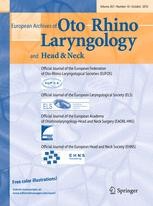
Magnesium alginate versus proton pump inhibitors for the treatment of laryngopharyngeal reflux: a non-inferiority randomized controlled trial
2022 Jan 15 European Archives of Oto-Rhino-Laryngology Pizzorni N, Ambrogi F, Eplite A, Rama S, Robotti C, Lechien J, et al.
Randomised Controlled Trial Proton Pump Inhibitor Alginate Magnesium GERDAlginate, as a treatment option for laryngopharyngeal reflux, is equally effective as proton pump inhibitors and may serve as a potential alternative treatment.
Research insights are moderated by the Research Hub team and offer an at-a-glance overview of interesting research findings.

2022 International Journal of Molecular Sciences
Magnesium, essential for harmonising nerve signals and preserving the blood-brain barrier, may be linked to neurodegenerative disorders when its balance is disrupted.
Review Article Alzheimer's Disease Multiple Sclerosis Neurodegenerative Diseases Parkinson's Disease
Magnesium and the Brain: A Focus on Neuroinflammation and Neurodegeneration
Maier JAM, Locatelli L, Fedele G, Cazzaniga A, Mazur A

2022 Frontiers in Nutrition
Certain natural mineral waters, when combined with a low-calorie diet, effectively reduce cholesterol and glucose levels in mice with metabolic syndrome.
Animal Study Blood Sugar Cholesterol Metabolic Syndrome Mineral Water
Natural Mineral Waters and Metabolic Syndrome: Insights From Obese Male and Female C57BL/6 Mice on Caloric Restriction
Narciso L, Martinelli A, Torriani F, Frassanito P, Bernardini R, Chiarotti F, et al.

2022 Acta Biomedica
Dietary supplements are found to be a promising complementary treatment for endometriosis, thanks to their anti-inflammatory, anti-oxidant, and immune modulatory characteristics.
Review Article
Dietary supplements for treatment of endometriosis: A review
Yalçın Bahat P, Ayhan I, Üreyen Özdemir E, İnceboz Ümit, Oral E

2022 European Archives of Oto-Rhino-Laryngology
Alginate, as a treatment option for laryngopharyngeal reflux, is equally effective as proton pump inhibitors and may serve as a potential alternative treatment.
Randomised Controlled Trial Alginate GERD Proton Pump Inhibitor
Magnesium alginate versus proton pump inhibitors for the treatment of laryngopharyngeal reflux: a non-inferiority randomized controlled trial
Pizzorni N, Ambrogi F, Eplite A, Rama S, Robotti C, Lechien J, et al.

2021 African Journal of Biological Sciences
Consumption of pumpkin seeds enhances the nutritional status and improves the attention deficit of deaf female children exhibiting ADHD symptoms.
Clinical Study ADHD Children's Health Iron Pumpkin Seed
Improvement of attention deficit hyperactive disorder for deaf female children by intake pumpkin seeds
Ataya H
Review Articles
Review articles summarise and critically evaluate the current state of research on a specific topic or field by synthesising multiple primary research studies.

Magnesium and the Brain: A Focus on Neuroinflammation and Neurodegeneration
2022 Dec 23 International Journal of Molecular Sciences Maier JAM, Locatelli L, Fedele G, Cazzaniga A, Mazur A
Review Article Alzheimer's Disease Neurodegenerative Diseases Multiple Sclerosis Parkinson's Disease MagnesiumMagnesium, essential for harmonising nerve signals and preserving the blood-brain barrier, may be linked to neurodegenerative disorders when its balance is disrupted.

Dietary supplements for treatment of endometriosis: A review
2022 Mar 14 Acta Biomedica Yalçın Bahat P, Ayhan I, Üreyen Özdemir E, İnceboz Ümit, Oral E
Review ArticleDietary supplements are found to be a promising complementary treatment for endometriosis, thanks to their anti-inflammatory, anti-oxidant, and immune modulatory characteristics.

Magnesium Sulfate-Rich Natural Mineral Waters in the Treatment of Functional Constipation–A Review
2020 Jul 10 Nutrients Dupont C, Hébert G
Review Article Constipation Mineral Water MagnesiumMagnesium sulfate-rich natural mineral waters are effective and safe as a natural treatment for functional constipation.
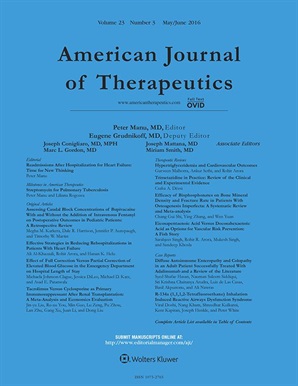
Magnesium Supplementation in Vitamin D Deficiency
2019 Jan American Journal of Therapeutics Reddy P, Edwards LR
Review Article MagnesiumMg is essential in the metabolism of vitamin D, and taking large doses of vitamin D can induce severe depletion of Mg. Adequate magnesium supplementation should be considered as an important aspect of vitamin D therapy.
Clinical Trials
Clinical trials are research studies that involve people and are conducted to evaluate the safety and efficacy of new treatments or interventions, such as drugs, medical devices, or behavioural therapies.

Magnesium alginate versus proton pump inhibitors for the treatment of laryngopharyngeal reflux: a non-inferiority randomized controlled trial
2022 Jan 15 European Archives of Oto-Rhino-Laryngology Pizzorni N, Ambrogi F, Eplite A, Rama S, Robotti C, Lechien J, et al.
Randomised Controlled Trial Proton Pump Inhibitor Alginate Magnesium GERDAlginate, as a treatment option for laryngopharyngeal reflux, is equally effective as proton pump inhibitors and may serve as a potential alternative treatment.

Non-pharmacological Randomised Control Trial: Green Coconut (Cocos nucifera L.) Water to Reduce Dysmenorrhea Pain
2020 Feb 29 Jurnal Kedokteran Brawijaya Nugroho FA, Putri OM, Sariati Y
Randomised Controlled Trial Period Pain Coconut WaterConsuming 330 ml of green coconut water can be an effective non-pharmacological approach to alleviate dysmenorrhea pain.
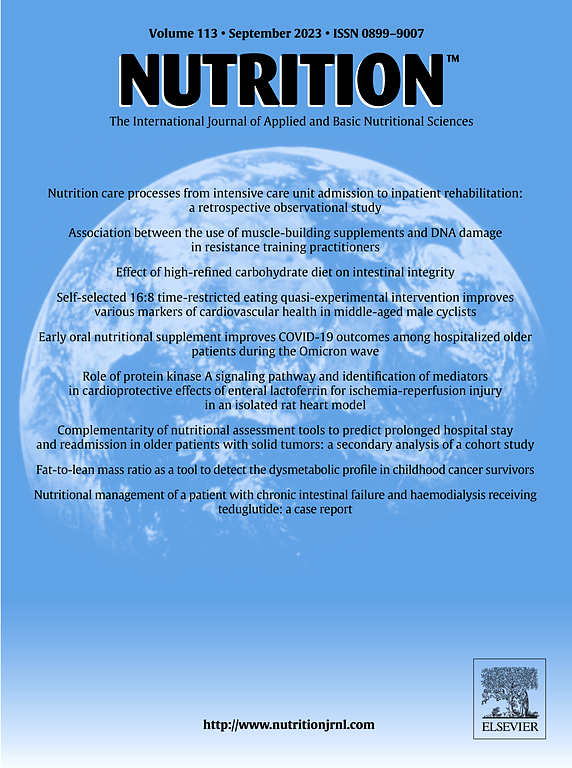
Time to treatment response of a magnesium- and sulphate-rich natural mineral water in functional constipation
2019 Sep Nutrition Dupont C, Constant F, Imbert A, Hébert G, Zourabichvili O, Kapel N
Clinical Study Randomised Controlled Trial Sulphate Mineral Water Magnesium ConstipationHépar mineral water, rich in sulphates and magnesium, effectively treats functional constipation, showing significant results within 7 days.
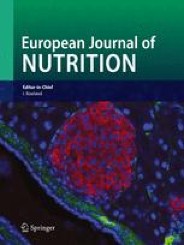
Efficacy and safety of a natural mineral water rich in magnesium and sulphate for bowel function: a double-blind, randomized, placebo-controlled study
2015 Nov 18 European Journal of Nutrition Bothe G, Coh A, Auinger A
Randomised Controlled Trial Sulphate Magnesium Mineral WaterDrinking natural mineral water rich in magnesium sulphate and sodium sulphate daily improves bowel movement frequency and stool consistency in people with functional constipation.
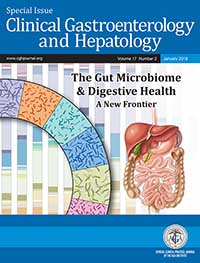
Efficacy and Safety of a Magnesium Sulfate–Rich Natural Mineral Water for Patients With Functional Constipation
2014 Aug Clinical Gastroenterology and Hepatology Dupont C, Campagne A, Constant F
Randomised Controlled Trial Mineral Water Constipation MagnesiumDrinking 1 liter of Hépar, a magnesium sulfate-rich mineral water, daily reduces constipation and hard or lumpy stools more effectively than low-mineral water in women.
Study Protocols
Published study protocols are detailed plans that outline the objectives, methodology, statistical analyses, and organisation of a research study that have been made publicly available for others to review and use as a reference.
Presentation Slides

Review Article
Magnesium, essential for harmonising nerve signals and preserving the blood-brain barrier, may be linked to neurodegenerative disorders when its balance is disrupted.
Maier JAM, Locatelli L, Fedele G, Cazzaniga A, Mazur A

Animal Study
Certain natural mineral waters, when combined with a low-calorie diet, effectively reduce cholesterol and glucose levels in mice with metabolic syndrome.
Narciso L, Martinelli A, Torriani F, Frassanito P, Bernardini R, Chiarotti F, Marianelli C

Review Article
Dietary supplements are found to be a promising complementary treatment for endometriosis, thanks to their anti-inflammatory, anti-oxidant, and immune modulatory characteristics.
Yalçın Bahat P, Ayhan I, Üreyen Özdemir E, İnceboz Ümit, Oral E

Randomised Controlled Trial
Alginate, as a treatment option for laryngopharyngeal reflux, is equally effective as proton pump inhibitors and may serve as a potential alternative treatment.
Pizzorni N, Ambrogi F, Eplite A, Rama S, Robotti C, Lechien J, Schindler A

Clinical Study
Consumption of pumpkin seeds enhances the nutritional status and improves the attention deficit of deaf female children exhibiting ADHD symptoms.
Ataya H
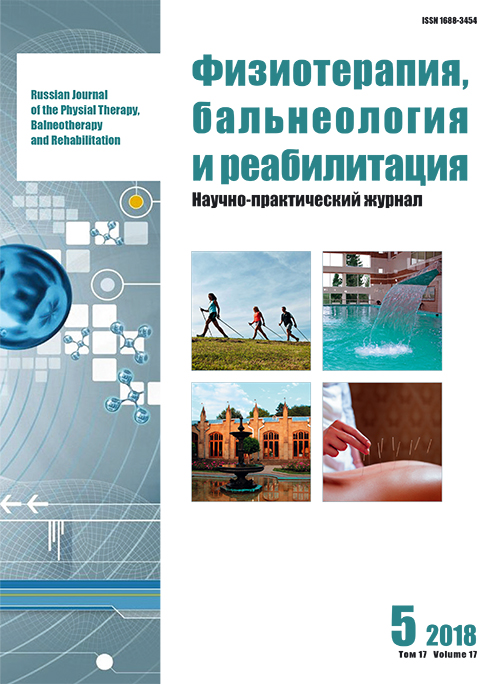
Clinical Study
Magnesium-rich mineral water effectively treats and prevents constipation in children, leading to regular, painless bowel movements.
Kulikov AG, Zakharova IN, Tvorogova TM, Stepurina LL, Elezova LI

Review Article
Magnesium sulfate-rich natural mineral waters are effective and safe as a natural treatment for functional constipation.
Dupont C, Hébert G

Randomised Controlled Trial
Consuming 330 ml of green coconut water can be an effective non-pharmacological approach to alleviate dysmenorrhea pain.
Nugroho FA, Putri OM, Sariati Y

Clinical Study
Hépar mineral water, rich in sulphates and magnesium, effectively treats functional constipation, showing significant results within 7 days.
Dupont C, Constant F, Imbert A, Hébert G, Zourabichvili O, Kapel N

Review Article
Mg is essential in the metabolism of vitamin D, and taking large doses of vitamin D can induce severe depletion of Mg. Adequate magnesium supplementation should be considered as an important aspect of vitamin D therapy.
Reddy P, Edwards LR

Randomised Controlled Trial
Drinking natural mineral water rich in magnesium sulphate and sodium sulphate daily improves bowel movement frequency and stool consistency in people with functional constipation.
Bothe G, Coh A, Auinger A
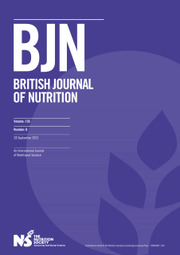
Cohort Study
High intake of magnesium from foods is linked to a significant decrease in the odds of developing reflux oesophagitis and Barrett's oesophagus.
Dai Q, Cantwell MM, Murray LJ, Zheng W, Anderson LA, Coleman HG

Randomised Controlled Trial
Drinking 1 liter of Hépar, a magnesium sulfate-rich mineral water, daily reduces constipation and hard or lumpy stools more effectively than low-mineral water in women.
Dupont C, Campagne A, Constant F
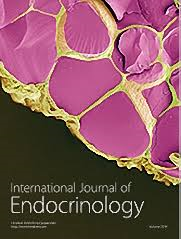
Animal Study
Regular intake of mineral-rich water, high in sodium bicarbonate, potassium, calcium, and magnesium, potentially reduces risk of Metabolic Syndrome and atherosclerotic cardiovascular disease.
Pereira CD, Severo M, Araújo JR, Guimarães JT, Pestana D, Santos A, Ferreira R, Ascensão A, Magalhães J, Azevedo I, Monteiro R, Martins MJ

Randomised Controlled Trial
Drinking mineral water, especially those high in magnesium, helps lower blood pressure among individuals with borderline hypertension and low calcium or magnesium excretion.
Rylander R, Arnaud MJ
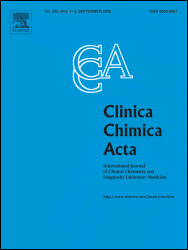
Clinical Study
Migraine patients exhibit lower intracellular magnesium levels, which can be increased by consuming magnesium-rich mineral water, demonstrating its bioavailability.
Thomas J, Millot JM, Sebille S, Delabroise AM, Thomas E, Manfait M, Arnaud MJ
Executive Summary
Write an executive summary in the form of a blog article on the topic of "Research into Chinese medicine treatment for Magnesium" summarising the research below and using language that can be easily understood by patients and avoiding medical jargon using a professional and caring tone of voice.
Write an executive summary in the form of a blog article on the topic of "Researched Chinese medicine treatments for Magnesium" summarising the research below in an objective and easy to understand way, and using language that can be easily understood by patients. Group the article into Chinese medicine treatments first, followed by nutrition and other treatments. Avoid using medical jargon and use a professional and caring tone of voice.
Write me a concise but easy to understand executive summary on the topic of "Chinese medicine treatments for Magnesium" based on the following research that I will give you. Your summary should be 2 paragraphs long in Australian English spelling and include references to the studies.
A Review Article published in 2022 in the journal International Journal of Molecular Sciences found that Magnesium, essential for harmonising nerve signals and preserving the blood-brain barrier, may be linked to neurodegenerative disorders when its balance is disrupted. The researchers performed a narrative review, beginning with a quick overview of the role of magnesium in the brain. Magnesium is crucial for healthy nerve signal transmission and the upkeep of the blood-brain barrier, which protects the brain from harmful substances in the blood. Then, they discussed evidence suggesting a connection between disrupted magnesium balance and a variety of neurodegenerative disorders. In the discussion of the results, it was posited that a deficiency in magnesium might contribute to low-grade systemic inflammation, which is common in many illnesses. Specifically, they argued that such inflammation in the brain is a characteristic feature of neurodegenerative diseases. The review found evidence that disruptions in the body's magnesium balance could be associated with multiple sclerosis, Alzheimer's, and Parkinson's diseases.
A Animal Study published in 2022 in the journal Frontiers in Nutrition found that Certain natural mineral waters, when combined with a low-calorie diet, effectively reduce cholesterol and glucose levels in mice with metabolic syndrome. The study involved 125 male and female C57BL/6 mice. Ten mice were kept as a healthy control group, fed a standard diet with tap water. The remaining 115 mice were fed a high-calorie diet (60% fat, 10% fructose in water) for four months to induce metabolic syndrome, followed by a two-month treatment phase with a low-calorie diet and various types of natural mineral water (NMW). The mice were divided into six treatment groups, each receiving a different NMW, and a control group receiving tap water. The study monitored body weight and blood biochemistry over six months. After four months on a high-calorie diet, both male and female mice developed obesity, high cholesterol, and high blood sugar, with males showing greater increases. During the treatment phase, NMWs rich in sulphate, magnesium, bicarbonate, and minimally mineralized water, along with a low-calorie diet, significantly lowered total cholesterol, HDL cholesterol, and glucose levels. Sex differences were observed during both the induction and treatment phases. These findings indicate that specific NMWs, in conjunction with a low-calorie diet, may help manage blood lipid and glucose levels in metabolic syndrome, although further research is needed to confirm these results in humans.
A Review Article published in 2022 in the journal Acta Biomedica found that Dietary supplements are found to be a promising complementary treatment for endometriosis, thanks to their anti-inflammatory, anti-oxidant, and immune modulatory characteristics. The researchers conducted a comprehensive literature review and synthesized the effects of various dietary supplements. The list of supplements includes vitamin D, zinc, magnesium, omega 3, propolis, quercetin, curcumin, N-acetylcysteine, probiotics, resveratrol, alpha lipoic acid, vitamin C, vitamin E, selenium, and epigallocatechin-3-gallate. These were studied due to their known anti-inflammatory, anti-oxidant, anti-proliferative, and immune modulatory characteristics. In terms of discussion on the results, the findings from the comprehensive literature review, encompassing in vitro, animal and human studies, show that there might be significant potential for dietary supplements as a complementary treatment to conventional therapy for endometriosis. Each supplement displayed attributes contributing to the mitigation of endometriosis symptoms, whether it was through anti-inflammatory means, antioxidant effects, immune modulation or their anti-proliferative properties. Despite variations between different kinds of supplements, the overall consensus indicates these function as a helpful add-on in managing the disease.
A Randomised Controlled Trial published in 2022 in the journal European Archives of Oto-Rhino-Laryngology found that Alginate, as a treatment option for laryngopharyngeal reflux, is equally effective as proton pump inhibitors and may serve as a potential alternative treatment. Researchers employed a non-inferiority randomized controlled trial with fifty participants, all of whom exhibited laryngopharyngeal symptoms. They were divided into two treatment groups; one group received the alginate suspension Gastrotuss in three daily doses, while the other was administered Omeprazole once daily. The Reflux Symptom Index and Reflux Finding Score were used to measure the severity of symptoms both before the treatment and after the two-month treatment period. It was found that both groups had similar Reflux Symptom Index and Reflux Finding Score values initially. After the two-month treatment, both groups demonstrated significant decrease in these indices, suggesting that the symptoms and signs of laryngopharyngeal reflux were significantly reduced, regardless of the treatment given. The difference between the changes in both Reflux Symptom Index and Reflux Finding Score from the two groups was found to be insignificant, thereby indicating that the effectiveness of Alginate is non-inferior to Proton Pump Inhibitors.
A Clinical Study published in 2021 in the journal African Journal of Biological Sciences found that Consumption of pumpkin seeds enhances the nutritional status and improves the attention deficit of deaf female children exhibiting ADHD symptoms. This study investigated 40 deaf female children, aged between 10 and 12 years, who exhibited symptoms of attention-deficit hyperactivity disorder (ADHD). These children were selected from El Amal school for the deaf and divided into two groups; control and experimental. Various data were gathered on personal and socio-economic factors, food habits, diet history, and clinical signs, along with performing the Attention Deficit Disorder Connected with Hyperactivity for Deaf Children test. The experimental group underwent a dietary intervention, consuming 50g of magnesium and iron-rich pumpkin seeds daily over three months. The results indicated an improvement in both iron and magnesium levels within the experimental group following the dietary intervention. Notably, compared to the control group, the levels of magnesium and iron were significantly higher in the experimental group after introducing pumpkin seeds into their diet. Furthermore, on evaluating the ADHD symptoms via the Attention Deficit Disorder Connected with Hyperactivity for Deaf Children test, the experimental group showed a more substantial improvement after dietary intervention than the control group. Over time, the findings demonstrated the potential beneficial effects of consuming pumpkin seeds on the nutritional status and ADHD symptoms in the studied population.
A Clinical Study published in 2020 in the journal Russian Journal of Physiotherapy, Balneology and Rehabilitation found that Magnesium-rich mineral water effectively treats and prevents constipation in children, leading to regular, painless bowel movements. This randomized, prospective, open, comparative study involved 95 children and adolescents aged 10-16 years with functional constipation. They received sanatorium therapy for 18 days, including a sparing-exercise regimen, therapeutic nutrition, health-improving massage, and physiotherapy exercises. Participants were divided into two groups: Group 1 (55 patients) received basic treatment plus magnesium-containing mineral water, while Group 2 (40 patients) received only basic treatment. The study assessed the frequency and nature of defecation, vegetative status, and functional body reserves. By day 5, 49% of Group 1 patients achieved daily defecation, increasing to 89.1% by the end of treatment. In contrast, only 55% of Group 2 showed positive changes by the end. The mineral water group also had softer, pain-free bowel movements, with most achieving a morning defecation reflex after consuming the water. The control group saw less significant changes in defecation nature, with only 18% reaching softer bowel movements by the end of treatment. The results indicate the effectiveness and safety of magnesium-containing mineral water in treating and preventing functional constipation in children.
A Review Article published in 2020 in the journal Nutrients found that Magnesium sulfate-rich natural mineral waters are effective and safe as a natural treatment for functional constipation. This paper reviews clinical data on the efficacy of magnesium sulfate-rich natural mineral waters in treating functional constipation (FC), a chronic type of constipation with no identifiable physiological, anatomical, or iatrogenic causes. The condition is known to significantly affect patients’ quality of life and increase healthcare costs. The study examines the historical use of magnesium sulfate in treating FC and its longstanding recognition for laxative properties, especially in the context of magnesium sulfate-rich mineral waters. The review highlights that, despite the long history of using magnesium sulfate-rich mineral waters for their laxative effects, clinical studies specifically demonstrating their effectiveness in FC were scarce before the 21st century. The collected data indicate that these mineral waters are not only effective in treating FC but also safe, positioning them as a viable natural treatment option for this condition.
A Randomised Controlled Trial published in 2020 in the journal Jurnal Kedokteran Brawijaya found that Consuming 330 ml of green coconut water can be an effective non-pharmacological approach to alleviate dysmenorrhea pain. The study used a non-pharmacological, randomized controlled trial to identify the optimal dosage of green coconut water as a magnesium source for reducing dysmenorrhea pain. A group of 21 participants was evenly divided into three groups. Treatment group 1 received 330 ml of green coconut water, treatment group 2 received 165 ml of green coconut water, and the control group was given 330 ml of mineral water. Each dosage was repeated three times every 4 hours. The study relied on the Visual Analogue Scale questionnaire to assess the severity of pain experienced by the participants both before and after the administration of the assigned drinks. In the results discussion, it was identified that the group that ingested 330 ml of green coconut water experienced the most significant decrease in pain compared to the other two groups. Conversely, treatment group 2 showed only a minor reduction in dysmenorrhea pain. Meanwhile, the control group, which only consumed mineral water, did not display any notable changes in their levels of pain intensity. From these findings, it was concluded that a 330 ml dosage of green coconut water is an effective non-pharmacological treatment alternative for dysmenorrhea pain.
A Clinical Study published in 2019 in the journal Nutrition found that Hépar mineral water, rich in sulphates and magnesium, effectively treats functional constipation, showing significant results within 7 days. In this multicenter, randomized, double-blind, controlled study, 226 outpatients with functional constipation were evaluated. Participants underwent a washout period before consuming 1.5 liters of water daily for 14 days, of which 1 liter was either Hépar or low-mineral water. Patients self-reported stool consistency daily, and an expert investigator, blinded to the treatment groups, evaluated stool consistency using the Bristol stool scale based on patient-provided photographs. The study successfully met its primary endpoint, with 50% of participants in the Hépar group responding to treatment by day 14, compared to 29% in the control group. The average time to observe a treatment response was 6.4 days for Hépar users, shorter than the 7.3 days in the control group. Approximately 60% of patients provided stool scores, with 79% of these scores closely aligning between patients and experts. The safety analysis of Hépar indicated excellent results, confirming its efficacy and safety in treating functional constipation.
A Review Article published in 2019 in the journal American Journal of Therapeutics found that Mg is essential in the metabolism of vitamin D, and taking large doses of vitamin D can induce severe depletion of Mg. Adequate magnesium supplementation should be considered as an important aspect of vitamin D therapy. Vitamin D screening assay is readily available, but the reported lower limit of the normal range is totally inadequate for disease prevention. Based on the epidemiologic studies, ∼75% of all adults worldwide have serum 25(OH)D levels of <30 ng/mL. Because of the recent increase in global awareness, vitamin D supplementation has become a common practice, but Mg deficiency still remains unaddressed. Screening for chronic magnesium deficiency is difficult because a normal serum level may still be associated with moderate to severe deficiency. To date, there is no simple and accurate laboratory test to determine the total body magnesium status in humans.
A Randomised Controlled Trial published in 2015 in the journal European Journal of Nutrition found that Drinking natural mineral water rich in magnesium sulphate and sodium sulphate daily improves bowel movement frequency and stool consistency in people with functional constipation. This placebo-controlled, double-blind, randomized trial involved 106 healthy individuals with functional constipation. They were randomly assigned to consume either 300 or 500 ml of a natural mineral water rich in magnesium sulphate and sodium sulphate (Donat Mg) or a placebo water daily for six weeks. The 300-ml groups were discontinued following an interim analysis. Participants recorded their bowel movements, stool consistency, gastrointestinal symptoms, and general well-being in a diary. The primary outcome was the change in the number of complete spontaneous bowel movements per week. In the 500-ml group, consisting of 75 subjects, there was a tendency for a higher increase in complete spontaneous bowel movements per week in the active group compared to the placebo after six weeks. The mean number of spontaneous bowel movements significantly increased over the study period, with notable differences between the study arms throughout the study. Stool consistency and subjectively perceived symptoms of constipation improved significantly with the mineral water compared to placebo. Overall, the daily consumption of this specific mineral water led to improvements in bowel movement frequency and stool consistency, enhancing the health-related quality of life for participants with functional constipation.
A Cohort Study published in 2015 in the journal British Journal of Nutrition found that High intake of magnesium from foods is linked to a significant decrease in the odds of developing reflux oesophagitis and Barrett's oesophagus. The study involved participants who were cases of oesophageal adenocarcinoma, Barrett's oesophagus, reflux oesophagitis and population-based controls, all gathered from throughout Ireland between 2002 and 2005. Each participant completed a 101-item Food Frequency Questionnaire (FFQ). The association between dietary intakes of magnesium, calcium and the ratio of calcium to magnesium on the risk of oesophageal adenocarcinoma, Barrett's oesophagus and reflux oesophagitis was analysed using unconditional logistic regression analysis, adjusting for potential confounders. In terms of results, participants consuming the highest amounts of magnesium from food considerably reduced their odds of reflux oesophagitis and Barrett's oesophagus when compared to those consuming the smallest amounts. This protective effect of magnesium was even more noticeable when the intake of calcium to magnesium was low. However, no significant associations were found between magnesium intake and the risk of oesophageal adenocarcinoma.
A Randomised Controlled Trial published in 2014 in the journal Clinical Gastroenterology and Hepatology found that Drinking 1 liter of Hépar, a magnesium sulfate-rich mineral water, daily reduces constipation and hard or lumpy stools more effectively than low-mineral water in women. This randomized, double-blind, placebo-controlled trial studied the effects of Hépar, a magnesium sulfate-rich natural mineral water, on 244 adult women with functional constipation, as defined by the Rome III criteria. The participants, identified by 62 general practitioners across France, were divided into three groups. After a washout period, they either drank 1.5 liters of natural low-mineral water daily (control group), 0.5 liters of Hépar plus 1 liter of low-mineral water daily (Hépar 0.5 group), or 1 liter of Hépar plus 0.5 liters of low-mineral water daily (Hépar 1 group) for four weeks. Data on stool number and type, abdominal pain, use of rescue medications, adverse events, and water consumption were collected. No significant effect was observed in the first week. However, by the second week, constipation reduction was observed in 21.1% of the control group, 30.9% in the Hépar 0.5 group, and 37.5% in the Hépar 1 group. The Hépar 1 group also experienced fewer hard or lumpy stools and less need for rescue medication. The effectiveness correlated with the magnesium sulfate concentration in the water. Safety was excellent, with no serious adverse events reported among the Hépar consumers. The study concluded that daily consumption of 1 liter of Hépar significantly reduced constipation and the occurrence of hard or lumpy stools in women with functional constipation, starting from the second week of treatment.
A Animal Study published in 2014 in the journal International Journal of Endocrinology found that Regular intake of mineral-rich water, high in sodium bicarbonate, potassium, calcium, and magnesium, potentially reduces risk of Metabolic Syndrome and atherosclerotic cardiovascular disease. Researchers conducted an experiment involving Sprague-Dawley rats, an animal model representing Metabolic Syndrome. For eight weeks, the rats consumed a diet that consisted of 10% fructose. They were also provided with a hypersaline sodium-rich naturally sparkling mineral water to drink. The saline water contained high levels of bicarbonate, potassium, calcium, and magnesium, in comparison to standard tap water, which was used as a control. The study observed various parameters, from heart rate to plasma triacylglycerols and insulin levels. It also studied hepatic (liver-based) catalase activity, leptin levels, and the weight ratios of different organs to body weight. Moreover, it took into consideration the performance of the liver's antioxidative functions by examining hepatic glutathione peroxidase activity and oxidized glutathione content. The experiment aimed to determine the effects of the mineral-derived salts in the water on these various aspects of the rat's health, and how they might mitigate the effects of the fructose-enhanced diet that simulated the physiological conditions of Metabolic Syndrome. Within the results, the scientific team found the intake of mineral-rich water attenuated the increases in heart rate, plasma triacylglycerols, leptin levels, hepatic catalase activity, and organ weight to body weight ratios that were induced by fructose. Furthermore, it prevented the reduction of hepatic glutathione peroxidase activity and oxidized glutathione content. Therefore, the team concluded that the mineral water seemed to have the potential to counteract the effects of the fructose diet, preventing the onset of Metabolic Syndrome. They suggested regular intake of such water could help improve metabolic and redox health.
A Randomised Controlled Trial published in 2004 in the journal BMC Public Health found that Drinking mineral water, especially those high in magnesium, helps lower blood pressure among individuals with borderline hypertension and low calcium or magnesium excretion. The research was conducted in a controlled environment with 70 subjects who have borderline high blood pressure. Each participant was given either water with low mineral content, magnesium-enriched water, or natural mineral water randomly and blindly over the course of four weeks. After the specified period, the researchers found that subjects with initially low magnesium or calcium excretion showed increased urinary excretion of magnesium when consuming waters that contain magnesium. Notably, a significant decrease in blood pressure was observed in the participants who consumed mineral water after 2 and 4 weeks. This indicates that the minerals ingested through water significantly contribute to the body's mineral balance and that an intake of mineral water may help reduce blood pressure among people with low urinary excretion of magnesium or calcium.
A Clinical Study published in 2000 in the journal Clinica Chimica Acta found that Migraine patients exhibit lower intracellular magnesium levels, which can be increased by consuming magnesium-rich mineral water, demonstrating its bioavailability. The study started by identifying a common issue with lower-than-recommended dietary intakes of magnesium in Western countries. The focus was on migraine patients, as low brain magnesium and impaired magnesium metabolism had been reported in migraine cases. A non-invasive and sensitive test to detect these deficiencies was sought. Magnesium, being an intracellular cation, was tested in 29 migraine patients and 18 control subjects. The tests were for total magnesium in plasma, erythrocytes, lymphocytes and ionized magnesium in lymphocytes. The analysis found that there were lower concentrations of total magnesium in erythrocytes and ionized magnesium in lymphocytes of migraine patients compared to controls. These findings indicated a notable overall difference between the migraine patients and the controls, despite there being overlaps in some individual values. The researchers then subjected the migraine patients to a 2-week intake of a mineral water rich in magnesium. An increase in all intracellular magnesium concentrations was observed, with no effect on plasma magnesium. This increase demonstrated the bioavailability of magnesium from the mineral water. Interestingly, the most sensitive index of magnesium deficiency turned out to be ionized magnesium in lymphocytes, which saw the most significant increase after the intake of the magnesium-rich mineral water.
Moderation Tools
Topic
Sign In
Users not signed in are limited to viewing the 5 most recent items of content.